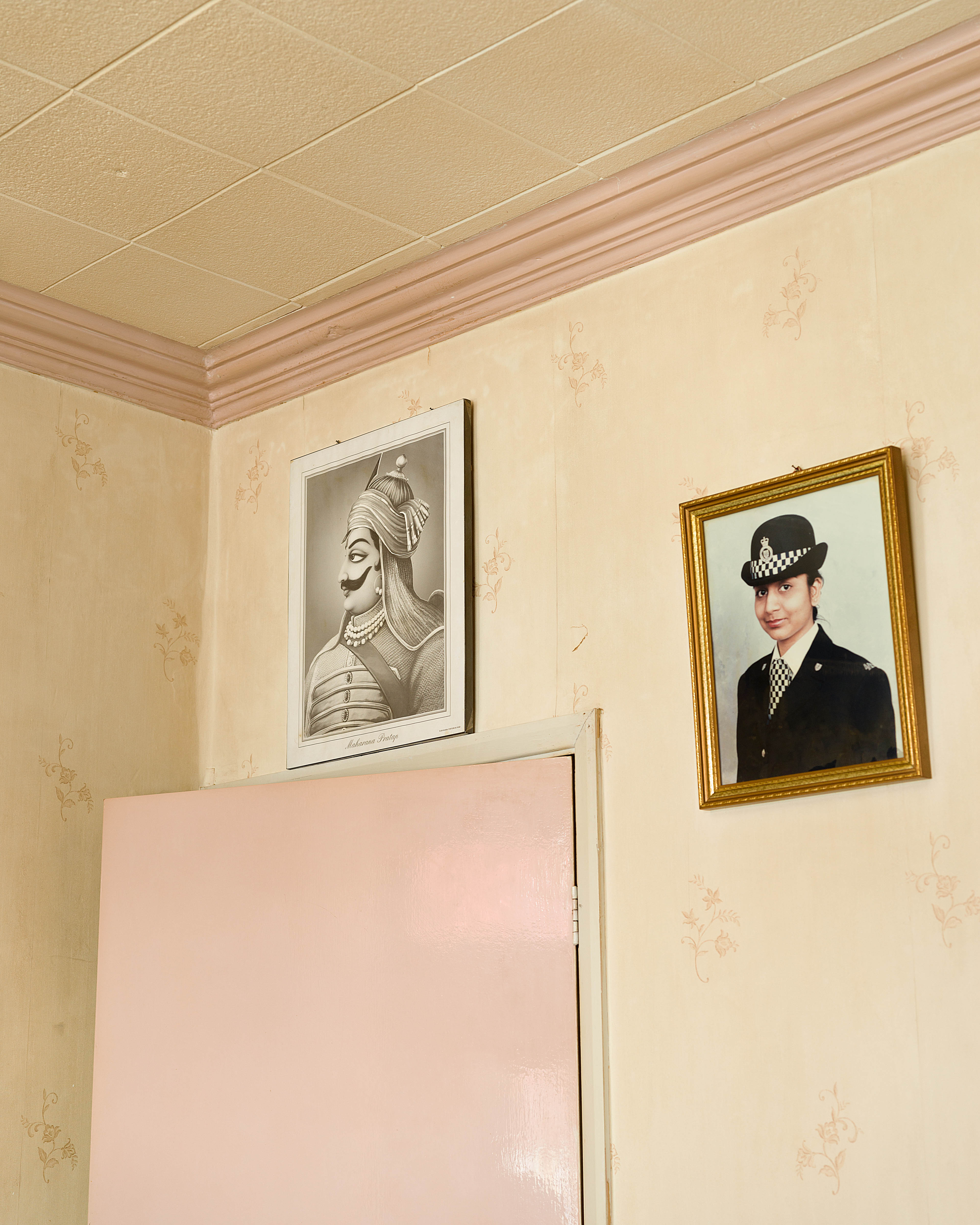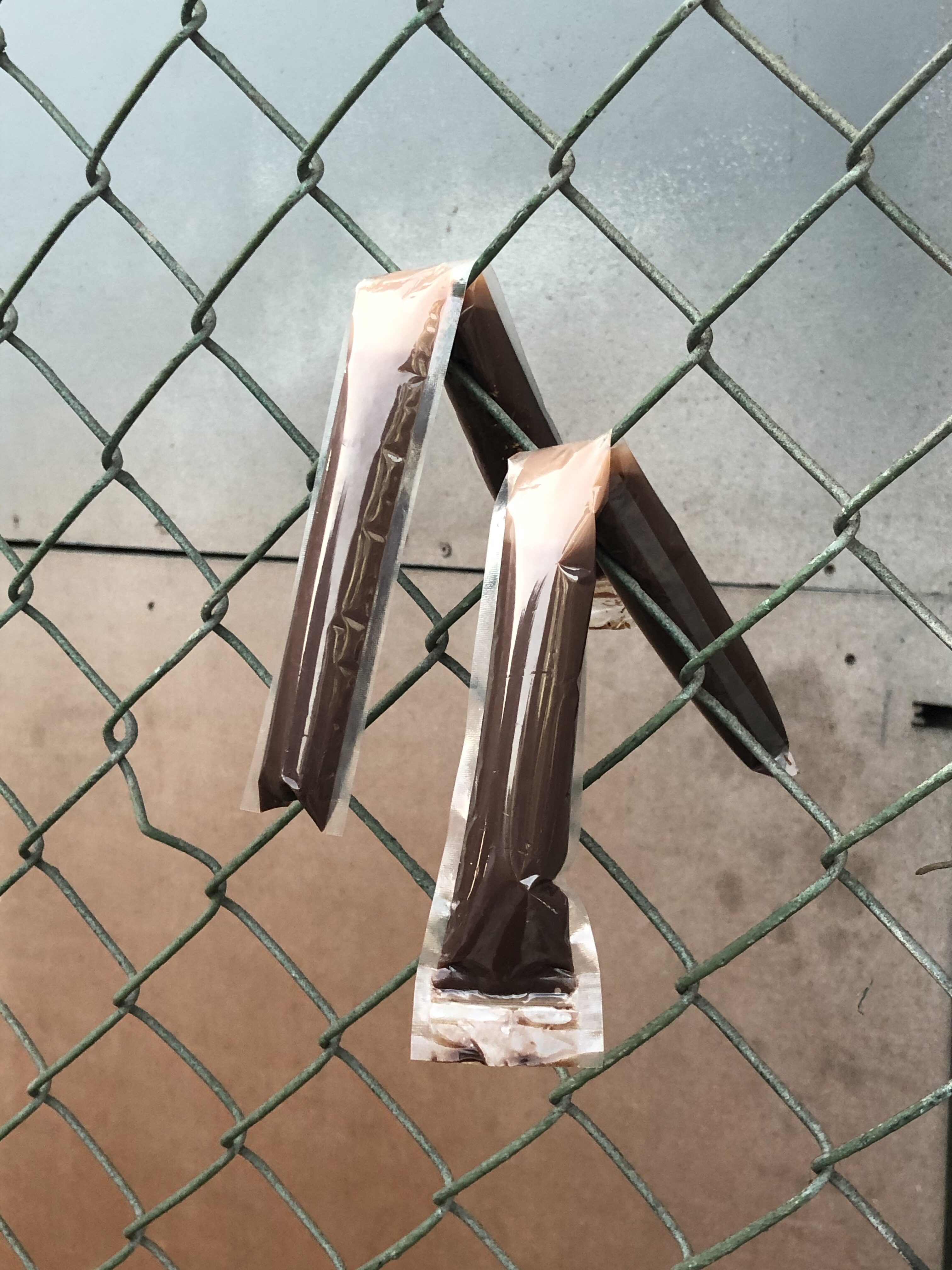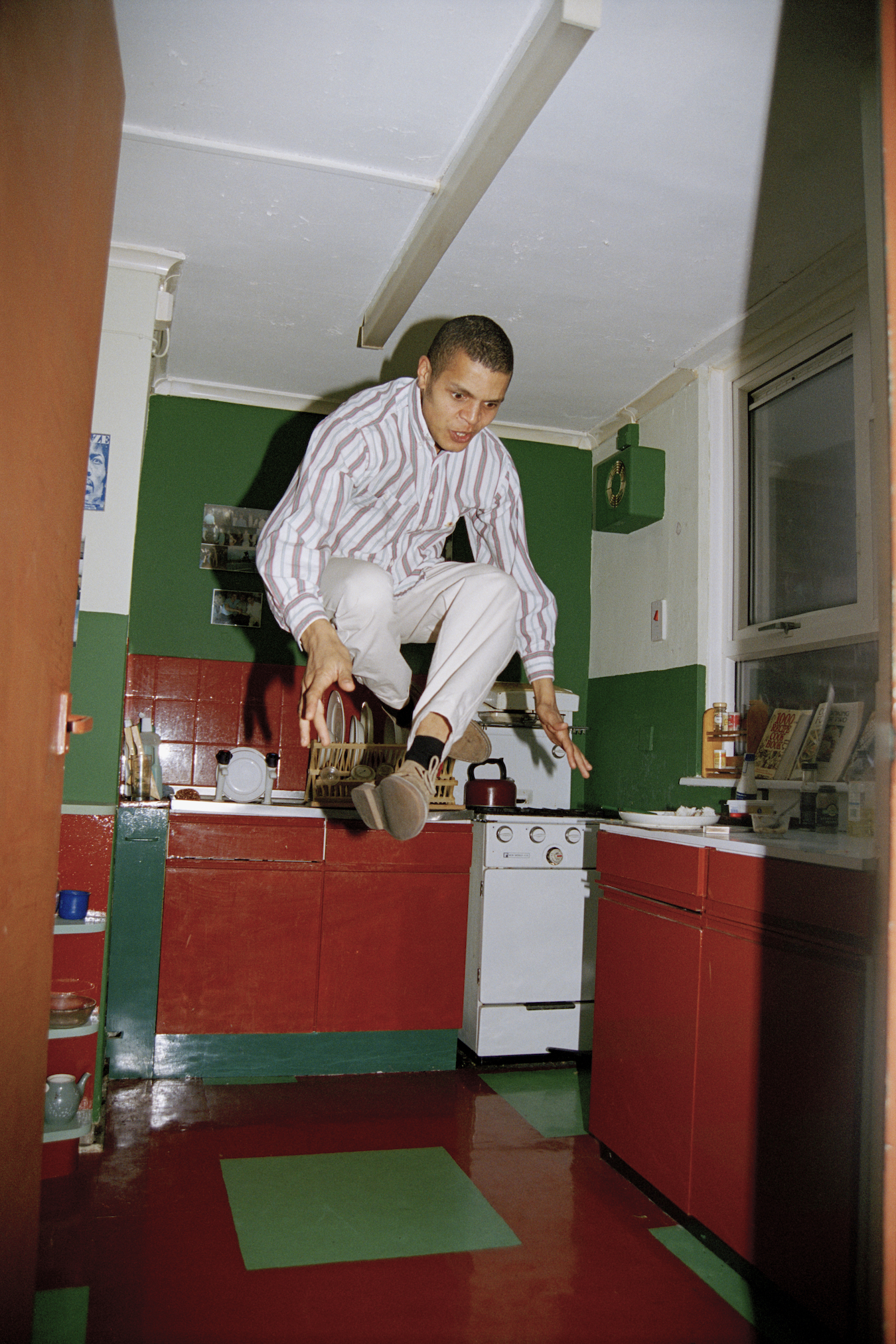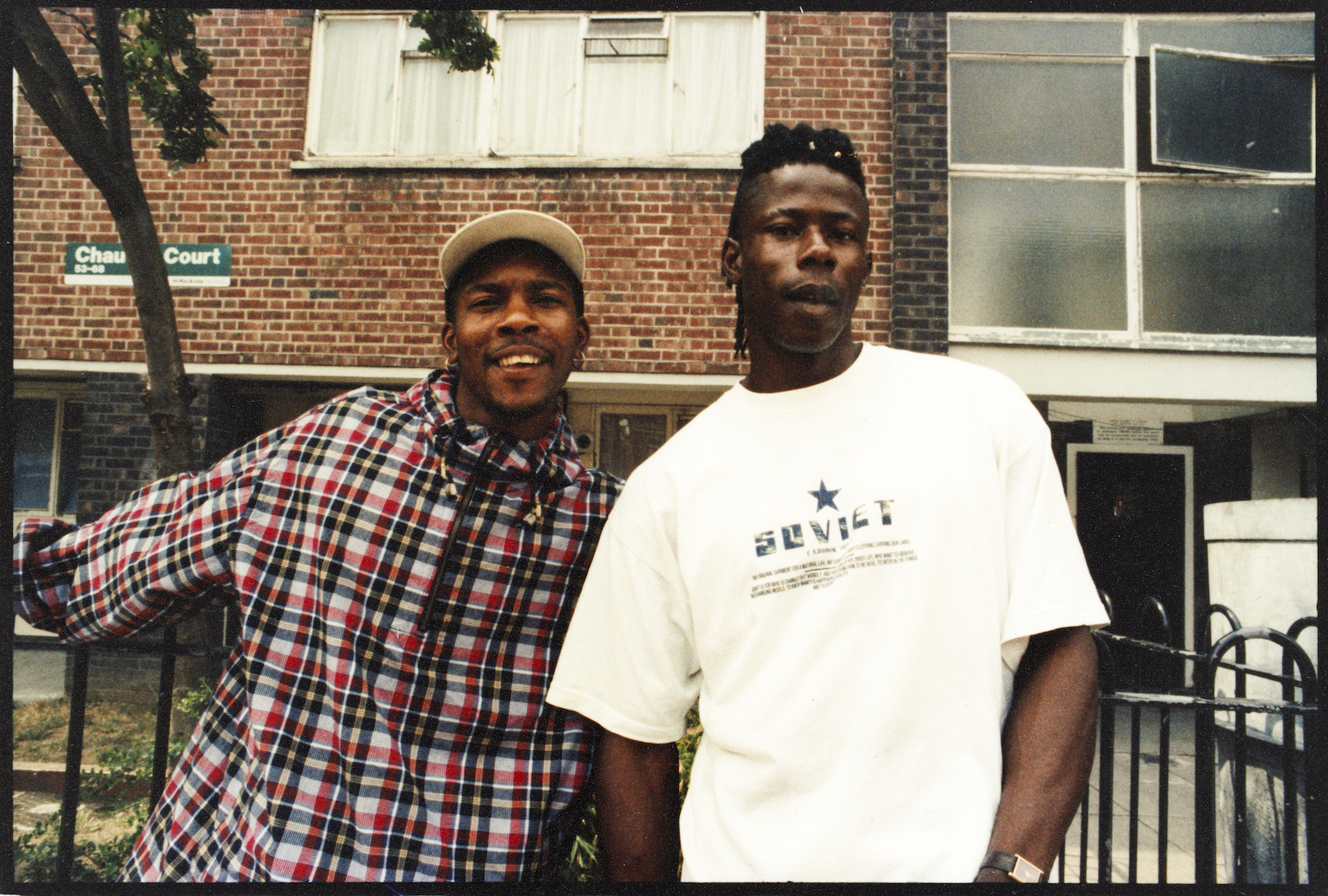Eddie Otchere, MC GQ, Elvis Meade, Stoke Newington, Hackney, 1995, Courtesy the artist
A new travelling exhibition explores what it means to be a working-class photographer documenting the working-class experience in post-Thatcher Britain
In summer 1989, political scientist Francis Fukuyama wrote: “What we are witnessing is not just the end of the Cold War, or a passing of a particular period of postwar history, but the end of history as such: that is, the end point of mankind’s ideological evolution and the universalisation of western liberal democracy as the final form of human government.” The quote is from Fukuyama’s essay The End of History?, published amid a swathe of anti-communist protests across the former Soviet Union, just months before the Berlin Wall fell. As communism came to an end in Europe, his words ushered in a new era of neoliberalism.
In the years preceding Fukuyama’s text, unemployment had soared and strikes had dragged on in Margaret Thatcher’s Britain. A generation of politically engaged working-class creatives documented the changes, with photographers such as Chris Killip and Tish Murtha capturing working-class experiences at the sharp end in classic, still-celebrated black-and-white documentary images. But as the 1990s arrived – bringing much of what Fukuyama predicted, and an extended version of his essay minus the qualifying question mark – the figure of the working-class hero began to vanish from books and magazines.


“Neoliberalism’s privatisation of public services, reductions in government spending, and cultural shift towards individualism helped shift the way British working-class communities were perceived”
Neoliberalism’s privatisation of public services, reductions in government spending, and cultural shift towards individualism helped shift the way British working-class communities were perceived – and photographed. The classic documentary style faded, and in its place another generation of working-class practitioners emerged. A new exhibition, curated by photographer and author Johny Pitts in collaboration with the Hayward Gallery, gives these artists centre stage. After the End of History: British Working Class Photography 1989–2024 explores what it means to be working class in a post-Thatcher world, presenting images that capture a wide range of experiences and styles.
Elaine Constantine’s Northern Soul confirms that the dance subculture – raucous, joyful and nonconforming – continues to flourish in working-class communities. Serena Brown celebrates the innovation and authenticity of working-class style, meanwhile, railing against its appropriation by high-end brands. Kavi Pujara’s This Golden Mile celebrates the multicultural community found around Leicester’s Melton and Belgrave Roads, the final stop on a long journey for generations of immigrants.

Photographed between 2018 and 2022, as an increasingly polarised UK exited the European Union, Pujara’s work explores the impact of changing political climates on working-class neighbourhoods. The same can be said of JA Mortram’s series Small Town Inertia, which has documented the often- marginalised lives of people in a market town in Norfolk since 2006. Mortram’s images are stylistically akin to the black-and-white masters of the 1970s and 80s, but they show the effect of a whole new dip in the economic cycle, exacerbated by the 2008 financial crisis.
Over three decades on from Fukuyama’s essay, as world powers once again toy with vast political and economic changes, it is poignant to reflect on the impact of neoliberalism on the British working class. After the End of History does so through these images, but also through the working-class artists who made them. In the intervening years it has become harder for working-class people to become artists, their numbers in creative jobs halving since the 1970s, according to the Office for National Statistics (2022). Working-class history has not ended, and this exhibition prompts questions about both the future of this community, and the artists who may or may not be able to emerge from it.
After the End of History: British Working Class Photography 1989-2024, is at the Herbert Art Gallery & Museum, Coventry, 29 March-16 June; Focal Point Gallery, Southend-on-Sea, 3 July-14 September; and Bonington Gallery, Nottingham, 27 September-15 December

